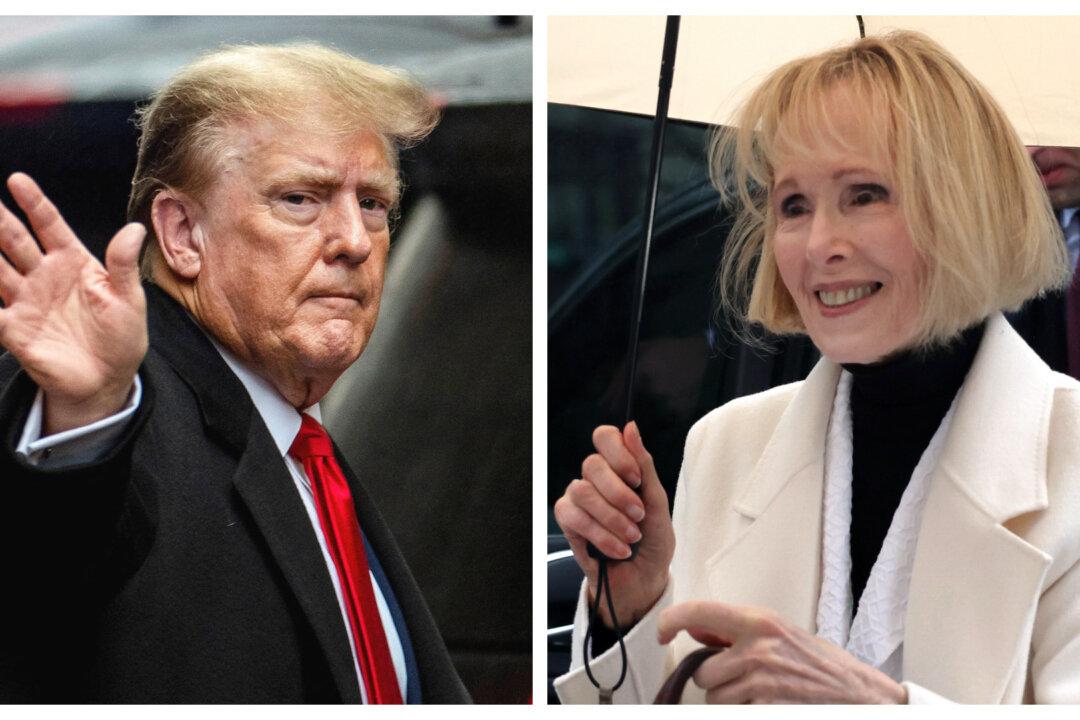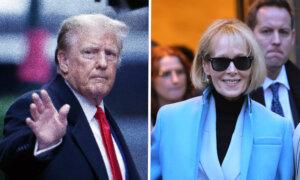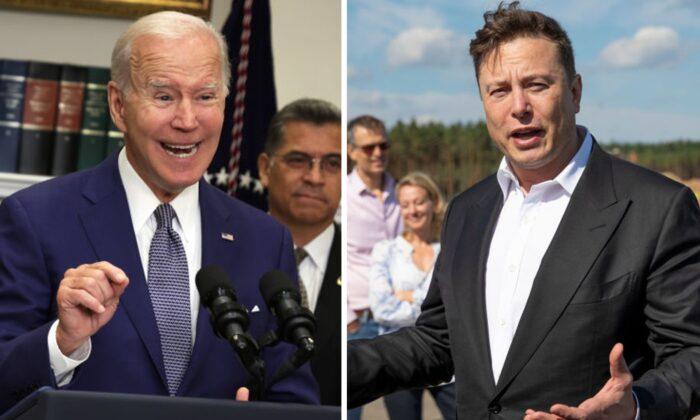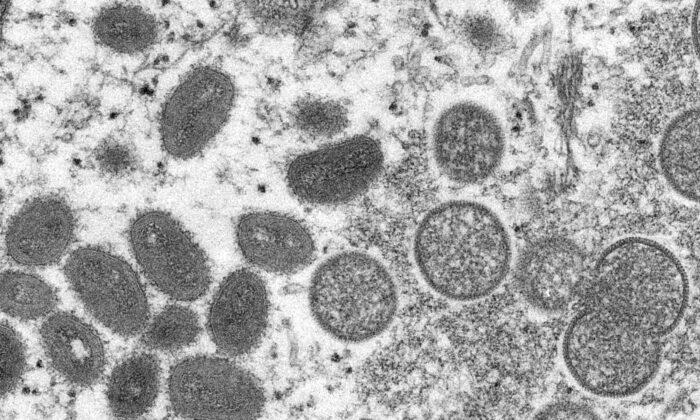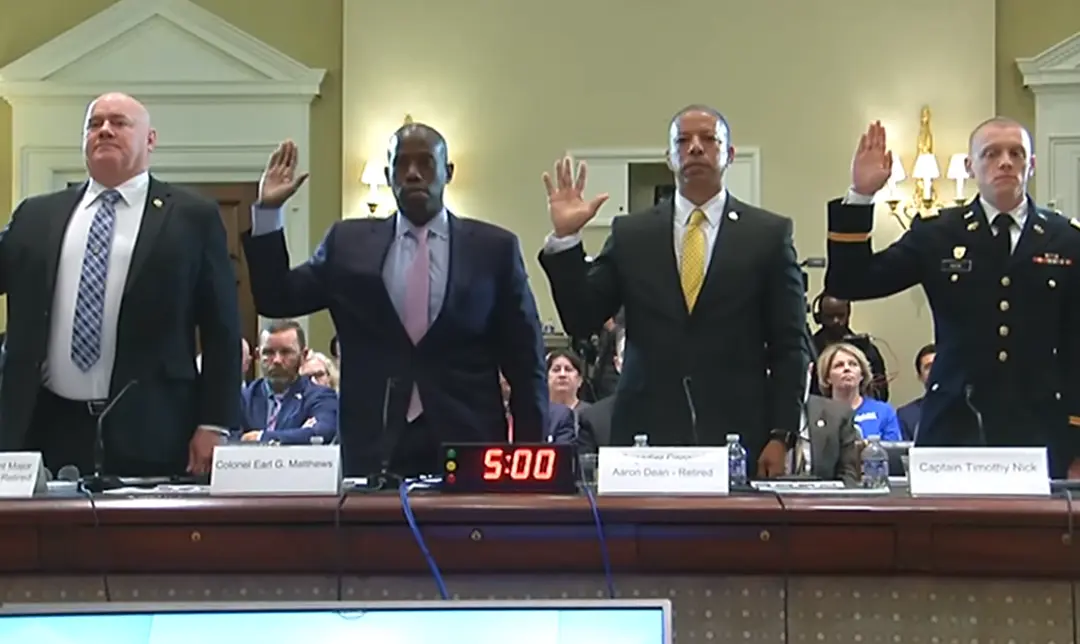A judge has denied former President Donald Trump’s request for a new trial or change of verdict in the E. Jean Carroll case, rejecting the former president’s contention that the outcome was tainted by extreme restrictions on his courtroom testimony and erroneous instructions to the jury.
Trial Outcome ‘Infected’ by Errors
In January, a jury decided that President Trump must pay Ms. Carroll more than $83 million in a case that claimed he defamed Ms. Carroll when he denied allegations of sexual assault.His attorneys argued that either of these errors is serious enough to render the jury verdict tainted and justifies his request for a new trial.
They wrote in the memorandum that the trial-court proceedings didn’t comply with the definition of common-law malice in multiple ways that were prejudicial. One of these was by prohibiting President Trump from expressing the view that he believed that the statements he made about Ms. Carroll were true.
President Trump’s attorneys raised other arguments in the motion in support of his request for a new trial, including that the awards of compensatory and punitive damages were excessive and should be remitted.
Judge Kaplan sided with Ms. Carroll in his April 25 decision to reject the former president’s request.
The judge upheld the constitutionality of the $65 million punitive damages award, arguing that there was evidence the former president used the office of the presidency, which he called “the loudest ‘bully pulpit’ in America,” to “destroy” her credibility, “punish” her for coming forward with her allegations, and “deter other women from doing so as well.”
He also upheld the $18.3 million compensatory damages award, finding that President Trump’s critical remarks with respect to Ms. Carroll were disseminated to more than 100 million people and endangered her health and safety.
It is unclear what steps President Trump’s counsel intends to take in response.
‘Wanted to Defend Myself’
In their March 5 memorandum, President Trump’s attorneys pointed to an exchange ahead of his courtroom testimony in which the judge demanded to know beforehand everything the former president was going to say and went over it in detail before allowing the jury to hear the former president’s statements.“When President Trump took the stand, the Court struck even the very limited testimony about President Trump’s state of mind that the questions allowed,” his attorneys wrote.
“Did you ever instruct anyone to hurt Ms. Carroll in your statements?” Ms. Habba, as defense counsel, asked President Trump when he was on the stand.
“No,” President Trump replied. “I just wanted to defend myself, my family, and frankly, the presidency.”
However, Ms. Carroll’s attorney raised an immediate objection, which Judge Kaplan sustained, ordering the jury to disregard everything beyond “no.”
President Trump’s lawyers argued that the judge made a mistake in restricting the testimony.
Jury Instruction ‘Erroneous and Prejudicial’
President Trump’s attorneys also argued that the jury was misled by “erroneous and prejudicial” instructions regarding common-law malice.The former president’s counsel submitted proposed instructions that punitive damage instructions to the jury should make clear that to meet the legal standard for common-law malice, the intent to injure must be the “sole motivation.”
However, the court overruled this proposal. Instead, Judge Kaplan told jurors they can find that a statement is made with intent to harm the defendant not only if “it is made with a deliberate intent to injure or made out of hatred, ill will or spite,” but also if it is “made with willful, wanton, or reckless disregard of another’s rights.”
The former president’s attorneys argued that the judge’s instructions disregarded New York’s “well-established ’sole motivation' requirement for common-law malice” and, as such, were incorrect.
“This instruction was erroneous, and the error was prejudicial,” they argued.
President Trump’s attorneys asked that the $83.3 million in damages awarded to Ms. Carroll be sharply reduced.
This legal saga stems from a defamation lawsuit Ms. Carroll filed over allegedly defamatory comments President Trump made about her in 2019 when she first publicly accused him of sexual assault.
President Trump has denied all of Ms. Carroll’s allegations.
